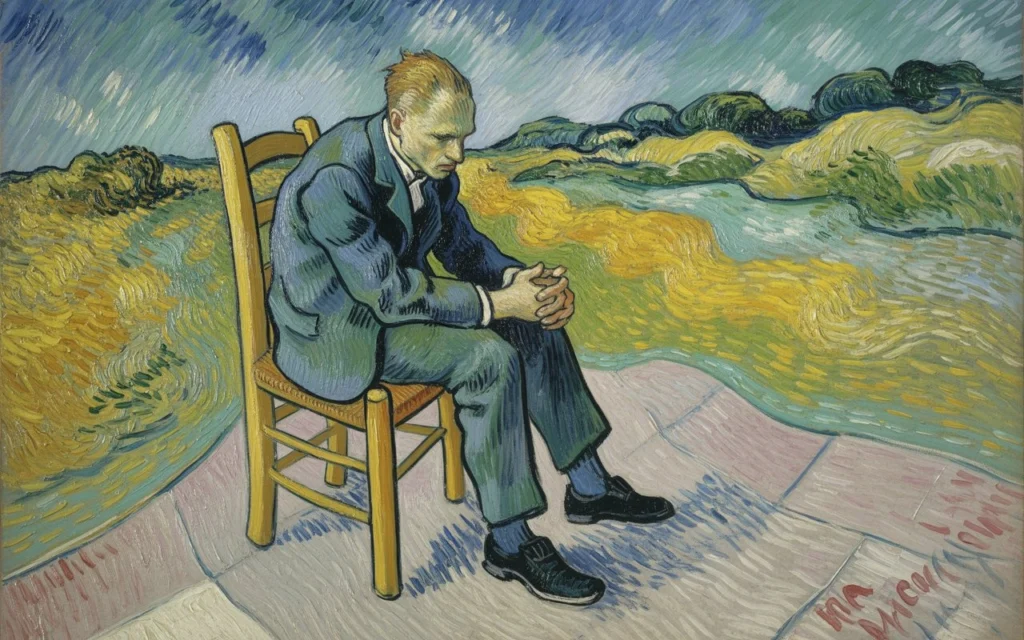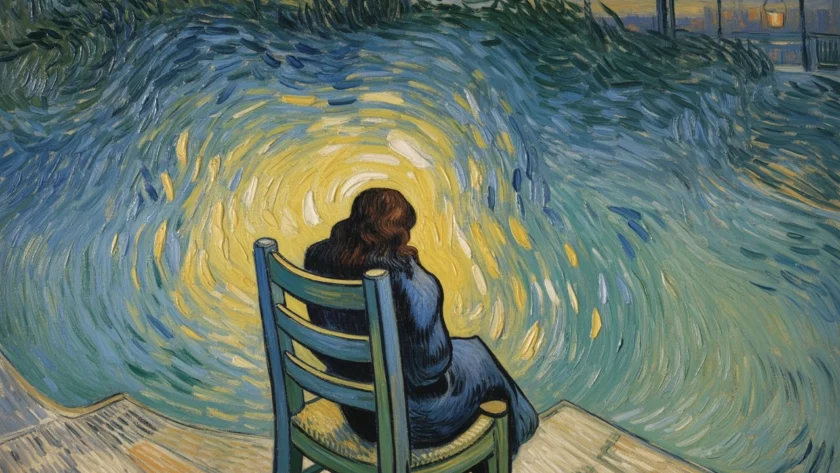The high school parking lot was emptying out, but my friend Sarah’s 15-year-old daughter, Emma, sat frozen in the passenger seat. She’d called her mom in tears, unable to make herself walk into school for the third time that week. “She used to love going to school,” Sarah told me later, her voice breaking. “Now she says her stomach hurts every morning. The pediatrician says there’s nothing physically wrong, but something is definitely not right.”
That conversation happened two years ago, but it comes to mind almost weekly now. Because here’s what nobody tells you about teenage anxiety: it rarely announces itself clearly. It doesn’t walk up and say, “Hi, I’m anxiety, and I’m making your teenager’s life miserable.” Instead, it disguises itself as stomach aches, attitude problems, or what looks like teenage laziness. And by the time parents recognize what’s actually happening, their kids have often been suffering in silence for months.
If you’re watching your teenager struggle and wondering whether anxiety might be the culprit, you’re already asking the right questions. Let’s talk about what anxiety actually looks like in adolescents—not the textbook version, but the real, messy, often-confusing reality of it.
Why Anxiety Shows Up Differently in Teenagers
Before we dive into specific signs, it helps to understand why teenage anxiety can be so hard to spot. Adolescence is already a season of massive change—hormonally, socially, and developmentally. The teenage brain is literally being rewired, especially the parts responsible for emotional regulation and decision-making. Add academic pressure, social media comparison, and the general stress of figuring out who they are, and you’ve got a perfect storm for anxiety to take root.
But here’s where it gets tricky: many anxiety symptoms in teenagers overlap with what we dismiss as “normal teenage behavior.” The moodiness, the withdrawal, the sudden disinterest in things they used to love—these can all be signs of anxiety masquerading as adolescent angst.
Proverbs 14:13 says, “Even in laughter the heart may ache, and rejoicing may end in grief.” That verse has taken on new meaning as counselors and parents have watched teenagers put on brave faces while crumbling inside. Anxiety doesn’t always look like obvious distress. Sometimes it looks like a kid who seems fine on the surface but is quietly drowning.
The Physical Signs That Often Get Missed
One of the most common ways anxiety manifests in adolescents is through physical symptoms. The body and mind are deeply connected, and when a teenager’s nervous system is on high alert, the body responds accordingly.
Unexplained stomach issues top the list. Morning stomach aches before school, frequent complaints of nausea, or digestive problems that have no medical explanation often point to anxiety. The gut-brain connection is real, and anxiety loves to settle in the stomach. Emma, the girl who couldn’t walk into school, wasn’t faking those stomach aches—her anxiety was producing very real physical distress.
Frequent headaches are another red flag. When a teenager mentions headaches multiple times a week, especially paired with other symptoms, anxiety might be the underlying cause. Tension headaches from constantly tight shoulders and jaw clenching are incredibly common in anxious teens.
Watch for changes in sleep patterns too. Anxiety in adolescents often disrupts sleep in distinct ways: difficulty falling asleep because thoughts are racing, waking up frequently during the night, or sleeping excessively as a way to escape anxious feelings. A teenager who suddenly needs multiple alarms or can’t drag themselves out of bed may be battling anxiety-induced exhaustion.
Rapid heartbeat, shortness of breath, or dizziness during non-athletic activities can indicate panic attacks or high anxiety. Some teenagers describe feeling like they can’t catch their breath or like their heart is pounding out of their chest during normal daily activities. These physical manifestations of anxiety can be terrifying for teens who don’t understand what’s happening to their bodies.

Academic and School-Related Warning Signs
School is often ground zero for teenage anxiety to reveal itself. The academic pressure, social navigation, and performance expectations create a high-stress environment where anxiety symptoms become impossible to hide.
School avoidance is one of the clearest indicators. This isn’t about occasionally wanting to skip school—it’s a pattern of desperate resistance to attending. The teenager might make excuses, complain of illness, or even become emotional or defiant about going. School refusal often stems from social anxiety, fear of failure, or overwhelming stress about academic performance.
Notice if your teen shows perfectionism that’s crossed into unhealthy territory. There’s a difference between being a conscientious student and being paralyzed by fear of anything less than perfect. Anxious teenagers might spend excessive hours on homework, refuse to turn in assignments they don’t think are perfect, or experience meltdowns over minor mistakes. This perfectionism often masks a deep fear of judgment or failure.
Declining grades despite apparent effort can signal anxiety too. When a bright student suddenly struggles academically, anxiety might be interfering with their ability to concentrate, retain information, or perform on tests. Test anxiety, in particular, can cause students who know the material to freeze during exams.
Watch for teenagers who avoid participating in class or seem increasingly reluctant to engage in school activities they once enjoyed. Social anxiety often prevents teens from speaking up, joining group projects, or participating in extracurricular activities. This withdrawal isn’t necessarily about losing interest—it’s about anxiety making those activities feel threatening.
Social and Behavioral Changes
The social landscape of adolescence is complex and often brutal. Anxiety can dramatically alter how teenagers navigate their social world, and these changes can be heartbreaking to witness.
Social withdrawal is a major warning sign. When a teenager who was once social starts isolating themselves, canceling plans with friends, or spending all their time alone in their room, anxiety might be driving that behavior. Social anxiety makes normal teenage interactions feel overwhelming and exhausting.
Pay attention to increased irritability or emotional outbursts. Anxiety doesn’t always look like worry—sometimes it looks like anger. Anxious teenagers may seem on edge, quick to snap at family members, or have emotional reactions that seem disproportionate to the situation. That irritability is often anxiety’s way of expressing itself when the teen doesn’t have other coping tools.
Excessive reassurance-seeking is another common pattern. Does your teenager constantly ask if they did something wrong, if people are mad at them, or if they’re going to fail at something? This need for constant validation often stems from anxious thoughts that won’t quiet down without external affirmation.
Watch for changes in technology use, particularly if it’s interfering with real-life relationships. While all teenagers use technology, anxious teens sometimes use it as a shield to avoid face-to-face interaction or as a way to constantly check on social situations that make them anxious. Obsessive social media checking, anxiety about being left out, or panic when separated from their phone can all indicate underlying anxiety.
The Less Obvious Emotional Indicators
Some anxiety symptoms in adolescents are subtle and easy to attribute to other causes. These emotional patterns require careful attention to identify.
Constant worry that seems out of proportion to the situation is a hallmark of generalized anxiety. The teenager might obsess over things that haven’t happened, catastrophize about unlikely scenarios, or spend excessive mental energy on “what if” questions. This worry often extends beyond normal teenage concerns into territory that genuinely interferes with daily life.
Difficulty making decisions can indicate anxiety too. When a teenager becomes paralyzed by relatively simple choices—what to wear, what to eat, which activity to join—anxiety might be overwhelming their decision-making capacity. The fear of making the “wrong” choice can be debilitating.
Notice if your teen shows excessive fear of judgment or criticism. Anxious adolescents often believe they’re being constantly watched and evaluated. This can manifest as refusing to try new things, extreme self-consciousness, or defensiveness when receiving any kind of feedback.
Negative self-talk that’s persistent and harsh is another red flag. All teenagers have moments of insecurity, but anxious teens often have a running internal narrative of self-criticism that shapes how they see themselves and their abilities. Comments like “I’m so stupid,” “Everyone hates me,” or “I can’t do anything right” might reflect anxiety-driven distorted thinking.
When Academic Pressure Becomes Anxiety
The college admissions process and academic competition have intensified dramatically in recent years, creating what many experts call an “achievement anxiety” epidemic among adolescents. This particular form of anxiety deserves special attention because it’s often praised as ambition or drive until it reaches a breaking point.
Teenagers experiencing achievement anxiety might seem like model students on the surface—high grades, multiple AP classes, impressive extracurricular involvement. But underneath, they’re driven by fear rather than genuine interest. They might say they “have to” get certain grades or get into certain schools, with an underlying belief that anything less means complete failure.
Matthew 11:28 offers a powerful counter-message to this achievement anxiety: “Come to me, all you who are weary and burdened, and I will give you rest.” For teenagers crushed under the weight of academic expectations—whether self-imposed or external—this invitation to rest can feel revolutionary. Their worth isn’t determined by GPA or college acceptance letters, even though our culture often sends the opposite message.
Physical Health Habits That Signal Anxiety
Changes in basic self-care and health habits can indicate that anxiety is affecting your teenager’s daily functioning.
Appetite changes—either eating significantly more or less than usual—often accompany anxiety. Some anxious teens lose their appetite entirely, while others turn to food for comfort. Either pattern, when combined with other symptoms, suggests emotional distress.
Nervous habits like nail biting, hair pulling, skin picking, or leg bouncing can be outward expressions of internal anxiety. While many people have these habits occasionally, an increase in frequency or intensity can indicate rising anxiety levels.
Watch for avoidance of previously enjoyed activities. When anxiety takes hold, activities that once brought joy can start to feel like obligations or sources of stress. A teenager who quits sports, drops out of clubs, or stops seeing friends might be struggling with anxiety that makes those activities feel overwhelming.
The Faith Perspective on Recognizing Anxiety
As parents and caregivers of faith, recognizing anxiety in our teenagers isn’t just about identifying a problem—it’s about seeing an opportunity to offer both practical help and spiritual support. God doesn’t waste our struggles, and teenage anxiety can become a pathway to deeper faith and resilience when handled with compassion and wisdom.
Psalm 139:1-2 reminds us that “You have searched me, Lord, and you know me. You know when I sit and when I rise; you perceive my thoughts from afar.” God already knows what your teenager is experiencing, even if they haven’t found words to express it yet. Your role isn’t to fix everything immediately but to pay attention, stay present, and create space for healing.
The church community can play a vital role in supporting anxious teenagers, but only when we’re willing to talk openly about mental health. Creating youth groups where teenagers feel safe discussing anxiety, offering prayer support that acknowledges real emotional pain, and connecting families with Christian counselors can all make a tremendous difference.
What to Do When You Recognize These Signs
Recognition is the first step, but it shouldn’t be the only one. If you’re seeing multiple signs of anxiety in your teenager, here’s what comes next:
Open a conversation with compassion, not confrontation. Avoid saying things like “You seem anxious” or “What’s wrong with you?” Instead, try observations like “I’ve noticed you seem stressed about school lately” or “You don’t seem like yourself recently—want to talk about it?”
Take their concerns seriously, even if they seem minor to you. What feels manageable to an adult might feel catastrophic to a teenager whose brain is still developing emotional regulation skills. Validation doesn’t mean you agree with their fears; it means you acknowledge their feelings are real.
Seek professional help when anxiety is interfering with daily life. There’s no shame in connecting your teenager with a counselor or therapist who specializes in adolescent anxiety. Christian counselors can integrate faith with evidence-based therapeutic approaches, offering the best of both worlds.
Address the physical needs alongside the emotional ones. Ensure your teenager is getting adequate sleep, nutrition, and exercise—all of which significantly impact anxiety levels. Sometimes practical changes in routine can provide meaningful relief.
Pray with and for your teenager, but don’t make prayer the only intervention. Faith and professional mental health support work beautifully together. God can work through therapists, medication when needed, and coping strategies just as powerfully as through prayer.
Moving Forward with Hope
Recognizing anxiety in your teenager isn’t a sign that you’ve failed as a parent or that your child is broken. It’s a sign that you’re paying attention and that you care enough to look beneath the surface. Anxiety in adolescence is treatable, and teenagers who get support early often develop resilience and coping skills that serve them throughout life.
The signs we’ve discussed—physical symptoms, academic struggles, social withdrawal, emotional changes—are starting points for understanding, not definitive diagnoses. Trust your instincts. You know your child better than anyone else. If something feels off, even if you can’t put your finger on exactly what it is, that intuition is worth exploring.
Remember that God doesn’t just see your teenager’s anxiety—He sees their potential, their purpose, and their future. Philippians 1:6 assures us that “he who began a good work in you will carry it on to completion until the day of Christ Jesus.” That includes the work of healing, growing, and learning to manage anxiety in healthy ways.
Your teenager’s struggle with anxiety doesn’t define them, but your compassionate response in recognizing and addressing it can shape their journey toward wholeness. Stay watchful, stay present, and don’t hesitate to reach out for the support your family needs. There’s no virtue in suffering in silence when help is available and healing is possible.




